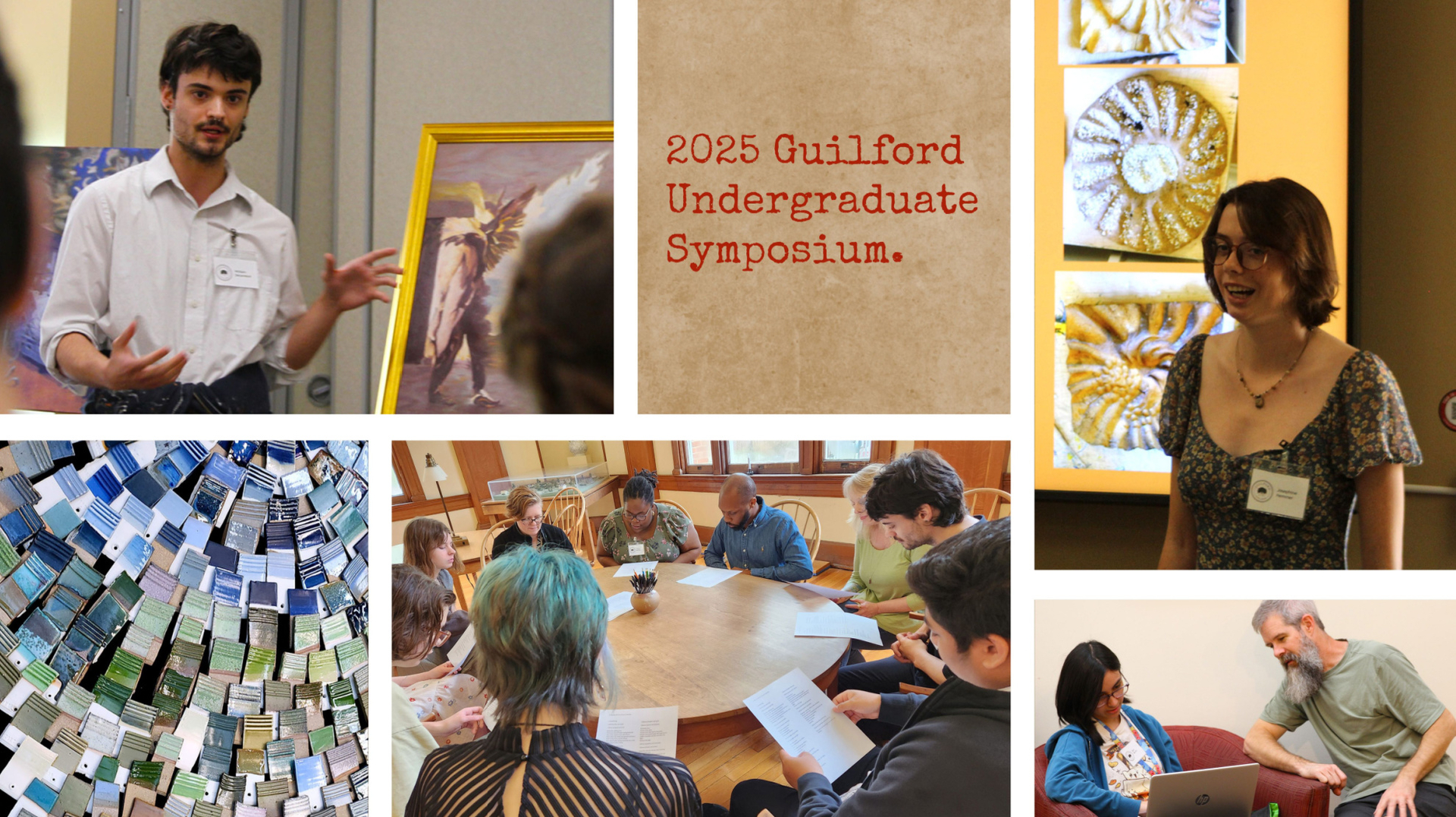
More than 90 students participated in Guilford College's annual symposium, which features a wide range of topics.
“Just being able to read through threat reports, analyze one of Lazarus’ campaigns and figure out how they did it, why they do it, and how we can stop them in the future — correlating all that data is fascinating to me,” he says.
Farah Wilde’s ’27 original thesis last fall began as a series of charcoal drawings centered on healing and reflection, a nod to her aspiration of becoming an art therapist.
However, midway through her project, she decided to take a different approach. And at Friday’s Guilford Undergraduate Symposium (GUS), students and faculty viewed her completed work — including the inspiration behind the shift: Farah’s mother.
In January, Farah reconsidered her original plan, which focused on darker personal experiences. “I wanted my show to be something people could walk away from with a positive experience,” she says.
Instead, she chose to highlight the people who helped her through difficult times. She started by mentally listing friends who had supported her throughout college, but ultimately, she decided to focus on her mother, Donielle Wilde.
On Friday, Donielle, Farah and a handful of classmates attended her presentation at GUS on campus. Farah, one of 10 children, never felt ignored by her mother`. “She’s always given everything and provided us with a unique love you can’t find anywhere else. I felt like she deserved this day as much as I did,” she says.
More than 90 students participated in the College's annual symposium, which featured a wide range of topics. One such presenter was Cyber & Network Security major Gavin Dellinger ’26, who focused on the Lazarus Group — a hacker organization allegedly operated by North Korean government officials.
Gavin, who hopes to pursue a career in threat intelligence defense, examined reports from private cybersecurity firms such as CrowdStrike and Palo Alto Networks. He emphasized the importance of understanding the group’s methods to prevent future attacks and hopes to expand on his research for his senior thesis.
“Just being able to read through threat reports, analyze one of Lazarus’ campaigns and figure out how they did it, why they do it, and how we can stop them in the future — correlating all that data is fascinating to me,” he says.
Other notable presentations included Computing Technology/Information Systems major William Oldham ’27, who analyzed an American cybersecurity company’s firewalls, and Chemistry major Ashley Linden ’27, who reported on One-Step Polyaniline-Platinum Nanoparticle Grafting on Porous Gold for Self-Powered Glucose Monitoring.
A group of students explored the intersection of Chemistry and Art by creating dozens of pottery pieces using different types of soil.
Additionally, three students were recognized as H. Curt '56 and Patricia S. '57 Award winners in the Leak Room:
- Brady Odell ’27 received the Hege Emerging Scholar Award for his presentation, Switzerland: The Nationalist Paradox.
- Coleman Smith-Rakoff ’27, a Political Science major, also won a Hege Emerging Scholar Award for The Dreyfus Affair: Anatomy of a Scandal.
- Taylor Davis ’27, a Health Sciences major, earned the Hege Research Award for Exploring Synergistic Antibacterial Activity of Camphor Essential Oil.
Since its inception in 2008, the Guilford Undergraduate Symposium has featured nearly 1,700 student presentations across various disciplines. The event has showcased video, sculpture, readings, music, dance, talks, posters, exhibitions of art, costumes, educational resources, and demonstrations — celebrating the creativity and scholarship of Guilford students.

